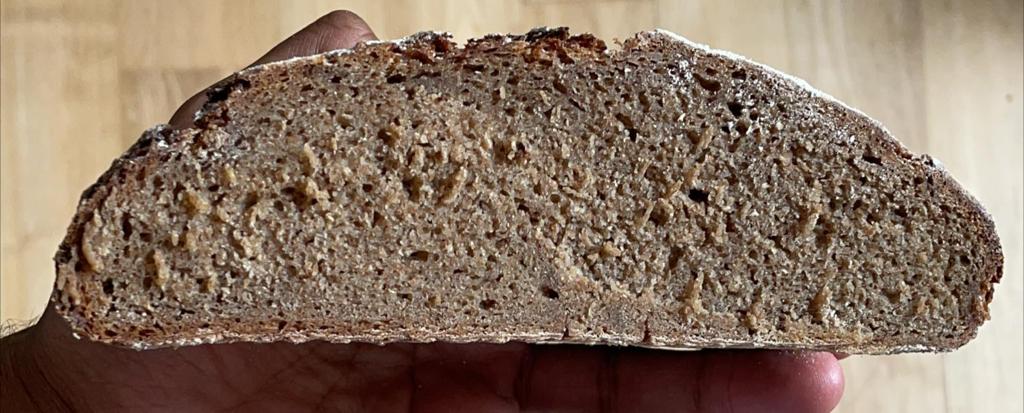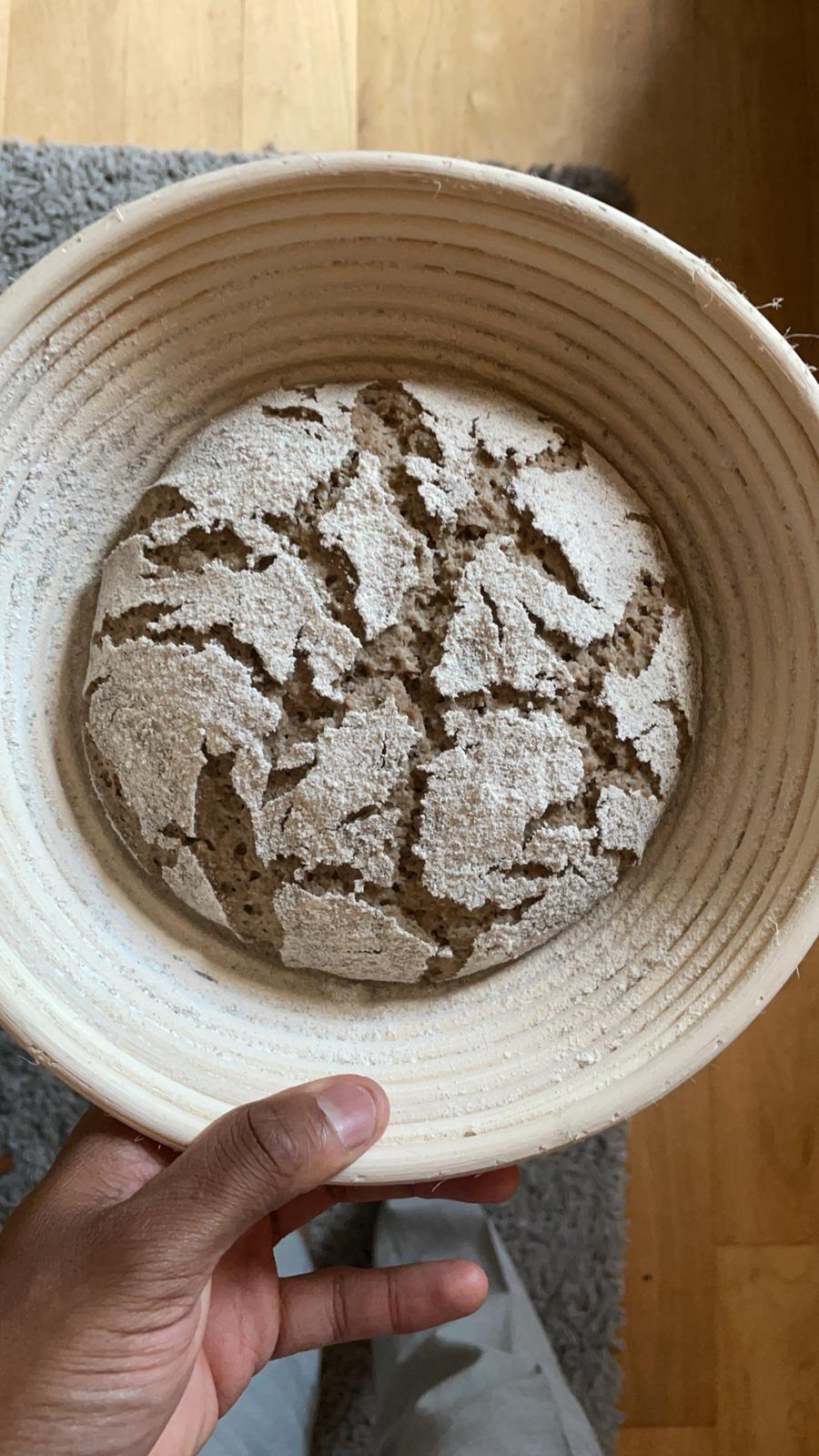Hi everyone, I have started my bread baking journey, and wondered whether my 100% wholemeal rye bread is slightly underproofed (Photo1)?

Photo 1. Is this underproofed?
The dough seemed ready to bake, so I am not sure if I could have waited a little longer before putting in the oven (Photo 2). I was concerned it could deflate a bit and get flattened.

Photo 2: Dough - Before baking
My recipe is based on Anita Sumer's 100% boule (400g rye flour/ 300g water/ 8g salt), and I used leaven (10g of my very active 100% rye' Boris' starter, 40g rye flour and 50g water).
Thanks for any feedback, I just wanted to know how to improve for the next time. The taste is very good, but I would like to improve the growth of the dough.
Cheers,
Leo
For a 100% rye, the dough is fully proofed when pinholes start appearing on the upper surface of the dough. Those are bubbles that have begun to pop because they have expanded beyond the dough's ability to stretch.
By the time the surface shows cracks, as in your example, the dough has been pushed beyond its ability to retain gas. You can see a compressed zone at the bottom of the baked bread in your first photo which shows that it has collapsed under the weight of the upper portion of the loaf. That is another indicator of over-proofing.
Overall, the bread came out rather well; so the over-proofing was fairly mild, rather than disastrous. Nice!
Paul
Hi Paul, thanks for the comment - it does make lots of sense indeed!
I will try and put the dough in the oven earlier next time.
Best wishes,
Leo
I agree with Paul above. I don't bake this style of rye bread, but I'd say this sort of cracked pattern should only appear after bake after the oven spring, not before. These cracks are what you might look for in a preferment to show that it's completed its fermentation and is ready for the final dough mix - but not in a shaped bread.
Still, if you like the flavour, you didn't do too shabby!
Yes, it seems I left the dough proofing for a little longer and it ended up collapsing a little l. All in all, it was a good effort - so all good in the end.
kind regards,
Leo
Rye has totally different characteristics than wheat. It is very touchy in the proofing department-it will go from correctly proofed to way overproofed in a matter of minutes. As Paul said-when pinholes appear-bake!
MiniOven is our resident rye expert. Take a look at her postings and esp her 100% Rye posting. Take a look at THIS post and search for her other rye posts-a veritable font of wisdom!
Rye makes such a delicious loaf but it is not a fluffy bread. I love the clean,moist,chew. My favorite is to add coarsely chopped dates,toasted walnuts or shelled & toasted sunflower seeds.
Enjoy!
Through hard experience, I can attest to the truths put forth by Paul and Ilya and clazar123. Over the past year, I've produced an unfortunate number of over-proofed ryes. I wised up by reading many comments, here and elsewhere, about how fast rye doughs can operate. When I made Stanley Ginsberg's excellent Auvergne Rye -- http://theryebaker.com/sourdough-tourte-de-seigle/ -- the dough was moving so rapidly that I wound up proofing it for less than 15 minutes.
Rob
PS your loaf looks way better than many of my efforts, btw. Keep having fun.
What strikes me is the size of the banneton, way too big for the amount of dough. Try a smaller one, one more deep with steep sides. Or make a bigger loaf. :) This should help the shape. That and getting it into the oven sooner. Nice Job!